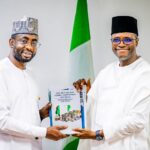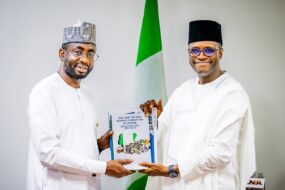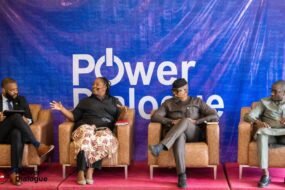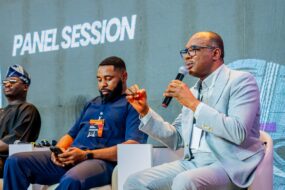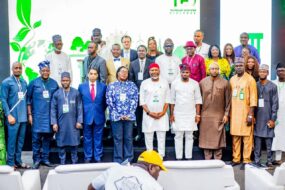- Home
- TOP STORIES
- Nigeria sets bold agenda to sh ...
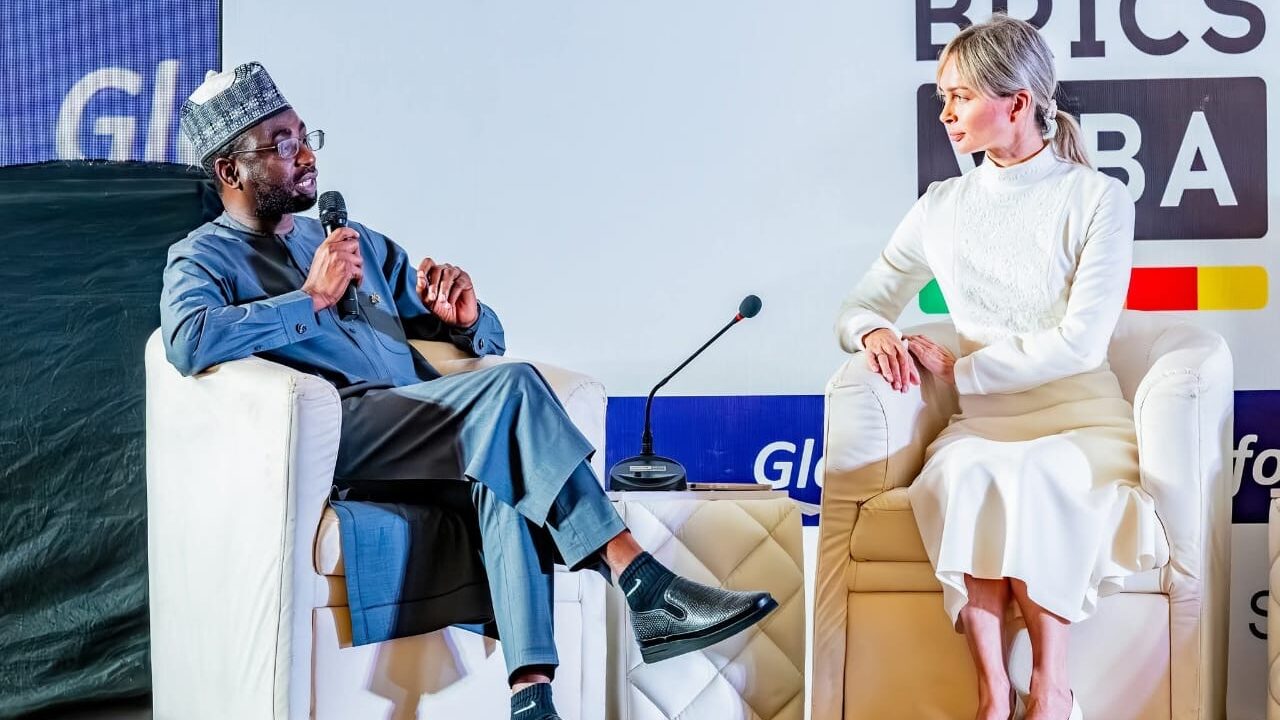
By Balarabe Oshiafi
The Director General of the National Information Technology Development Agency (NITDA), Kashifu Inuwa has reaffirmed Nigeria’s commitment to becoming a key shaper in the global artificial intelligence (AI) landscape, stressing that the country’s efforts are deeply encapsulated in President Bola Tinubu’s Renewed Hope Agenda.
Speaking during a plenary session themed “Technology, Migration & Trade Representation” at the Stakeholders’ Interactive engagement with the BRICS Women’s Business Alliance, held at the State House in Abuja, Inuwa outlined Nigeria’s strategic roadmap for emerging technologies.
He noted that the President Bola Tinubu’s Renewed Hope Agenda places strong emphasis on economic diversification and inclusivity, with priority number seven focusing on accelerating industrialization, digitalization, creative industries, manufacturing, and innovation.
According to him, this vision has informed the Ministry of Communications, Innovation and Digital Economy’s roadmap, and guides NITDA’s ongoing initiatives to transform Nigeria into a digital powerhouse in Africa.
The NITDA boss explained that at the heart of this ambition is Nigeria’s National AI Strategy, which lays out a clear pathway for the country’s technological future. He described the first priority as building foundational infrastructure that will allow Nigeria to play a meaningful role in the AI journey. According to him, this involves expanding connectivity, developing sovereign cloud platforms, and building clean and representative national datasets.
He noted the launch of the National Multilingual Large Language Model in New York as a major milestone, saying, “For us, it is important that our languages, our culture, and our people are represented in the AI of the future. That is why we built Nigeria’s own multilingual large language model — to ensure that technology reflects our identity and diversity.”
Inuwa also stressed the importance of nurturing the ecosystem by empowering startups and innovators, anchored by the Nigerian Startup Act which provides a legal and institutional framework for growth.
“Innovation does not happen in isolation. You need an ecosystem that connects government, innovators, investors, and global partners. Through our startup policies, we are not just encouraging entrepreneurship; we are deliberately prioritizing inclusivity and giving women founders the space to thrive,” he added.
On sectoral transformation, Inuwa explained that AI is being integrated into key industries such as healthcare, agriculture, manufacturing, and education to radically boost productivity, adding that AI will not replace humans; rather, it will enhance human endeavor.
“With AI, we can achieve ten times the productivity we are seeing today. Imagine what it means when our doctors can diagnose faster, our farmers can predict yields better, and our manufacturers can cut inefficiencies. That is the kind of leap Nigeria is preparing for,” he stated.
Inuwa pointed out that if technology is not designed with inclusivity in mind, vulnerable groups could be left behind. “If you are digitally invisible, AI will not consider you in its decision-making. That is why inclusivity is not optional — it is central. In every one of our initiatives, we insist on at least 40 percent women representation, because we cannot build a future that excludes half of our population,” he said.



